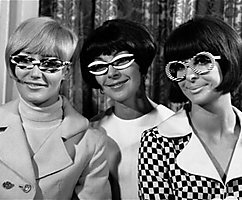The most influential books of the twentieth century
 Bashny.Net
Bashny.Net
George Bernard Shaw said: "Reading made don Quixote a knight, and faith in read made him mad." A similar effect is had on the person's most significant books of the twentieth century. They changed the story, inspired people to great deeds and drove me crazy.

Sigmund Freud "the Interpretation of dreams" (1900)
The first book in every sense. The first major work of Freud, the first most influential book of the century. It first explains the key psychoanalytic concept of the unconscious. The work is inspired by the creators of dream interpretation around the world. After reading the book, it is possible to learn to find the hidden desires and the true motives in my dreams, encrypted hidden images.
Ebenezer Howard's "garden Cities of the future" (1902)
Here laid the foundations of modern urban planning and urban knowledge. The idea of "garden city" is reflected in the urban planning of many capitals and the suburbs of the world. The utopian constructivism of the book was the development of the ideas of sustainable cities and directions of eco-tech architecture.
Otto weninger "sex and character" (1902)
The book can take a well-deserved place in the list, because it has influenced, perhaps, on all types of social phobias-homophobia, xenophobia, racism, sexism, anti-Semitism. Pretty pseudoscientific reasoning to convince the reader that the female gender is inherent in a low degree of awareness, sensitivity, inefficiency and immorality. To the carriers of the feminine, the author also brought Jews and blacks.
Halford John Mackinder "the Geographical axis of history" (1904)
A classic of the genre. British colonial geopolitics, with its romantic "divide and conquer". The book was a bombshell in academics and influential circles. Became the common language of geopolitics of different countries, even adjusted to each other (including the author) hostile. Russia has had a great influence on Eurasians.
Max Weber "the Protestant ethic and the spirit of capitalism" (1905)
If you don't want to look stupid in a conversation with the sociologist, be sure to mention this book. In order to make this book useful, it is not necessary to be a Protestant or an entrepreneur. "The secret of success" of the economy of England and the United States, starting with the New time to be found here. One of the most influential sociological books.
James Joyce Ulysses (1918-1920)
The novel "Ulysses" is not morality so much so that after publication it was forbidden to distribute in his homeland. But today it is available to everyone. And if your resolve to read a novel is not enough for all 800 pages, read at least the famous dialogue of Molly bloom. It's worth it.
Ludwig Wittgenstein "Logical-philosophical treatise" (1921)
"What can say, can say clearly, but we have to speak, should remain silent". The famous phrase accurately describes the main blotted out of the book. Influenced the entire analytic tradition of Western philosophy, with its desire to create a perfectly logical language to describe facts. The main object of study of science and philosophy are not things and facts. The primary human reality – language.
Ossendowski Ferdinand Antoni", and beasts, And men, and gods" (1922)
The book that anticipated the spread of the ideas of traditionalism across Europe. Full of mysticism, this controversial book has inspired Guenon and Himmler. Influence on spirituality, a book considered the development of the "Secret doctrine" of Blavatsky. Perhaps the book Ossendowski, written under the influence of the ideas of the "great middle Kingdom" Ungern was influenced by the Nazi idea of a "crusade to the East."
Le Corbusier "towards a new architecture" (1923)
The book that inspired the architects and city planners around the world, translated into many languages. The Manifesto of the architecture of modernism. The modern look of cities, originates in the works of Corbusier 20-ies of XX century, especially in this book.
Lovecraft Howard Phillips "The Call Of Cthulhu" (1926)
When life works Lovecraft did not enjoy much popularity, but after his death they had a huge impact on modern pop culture. What Lovecraft is considered one of the founders of the fantasy genre. The uniqueness of his works led to the fact that they were allocated in a separate genre – lavrovskii horror.
Bertrand Russell "Why I am not a Christian?" (1927)
A vivid example of an atheistic philosophy of evidence. In a popular form, the book rejects the evidence for God's existence from the point of view of formal scientific logic. Influenced liberation anti-clerical movement in America, Europe and China and the discourse of free-thinking in General. The circulation of books was only one of the Soviet publications was 200,000 copies.
Martin Heidegger "Being and time" (1927)
The most significant work of philosophy in continental Europe. Again raises the question of "being", gives him content and binding in time. The book influenced the existentialists, hermeneutical and postmodernists of the twentieth century.
Rene Guenon "King of peace" (1927)
The book collects European, Islamic, Jewish, Hindu and many other religious and philosophical traditions. For the first time the esoteric, mystical practices and beliefs of different cultures were United under the wing of the Primordial Tradition, eternal truths. Here is asserted the opposite philosophical mainstream European view of humanity. It is inherent in the cyclical nature of existence, the transmission of Tradition instead of progress. Influenced conservative ideologues of various movements.
Julius Evola's "Pagan imperialism" (1928)
A controversial book that inspired his harsh criticism of Western society and the development of a huge number of thinkers, traditionalists around the world. Her fans included Italian fascists, German Nazis, neo-fascists and the new right, the book became a Manifesto of nationalism deployed racism (blood and spirit), the doctrine of tradition.
Leon Trotsky "Permanent revolution" (1930)
The book is equally inspired as a revolutionary romantics and serious theorists. However, in the midst of McCarthyism and work performances were not up to romance. Wealthy people in the United States clutching his head when he heard only one name of this book. The fact that theorists of permanent revolution since Marx (A. Parvus, Trotsky) were Jewish, has generated a lot of conspiracy theories. And in the Soviet Union author attributed almost treason for refusing to restrict the building of socialism in their country.
Jose Ottega y Gasset "revolt of the masses" (1930)
The problem of mass society was raised in the book when it was not yet mainstream. For the first time the author described modern society as a result of "revolt of the masses", mass art and culture of fairly low quality. The cult of the average man, which imposes on all its mediocre point of view, rudeness – is the main scourge of our time. The book is largely predicted the onset of fascism in Europe.
Dale Carnegie "How to win friends and influence people" (1936)
Only the U.S. has sold 5 million copies of this book. For a record amount of time (about 10 years) stayed on the bestseller list "The New York Times". Some call it a reference book of a successful person, other Bible losers, but the impact on the behavior of several generations of readers was enormous. Especially the recipes in this book are popular in the commercial sphere (for example, training in marketing).
Wilhelm Reich's "Sexual revolution" (1936)
The book that started it all. In the English edition for the first time got the name of the huge reservoir of the theory and practice of human liberation — a sexual revolution. A revolutionary in spirit, the Marxist, the author criticizes all the political forces, from conservatives to Communists. In the book he makes a new revolution. It penetrates into the areas that seemed to go on forever was closed for discussion and study. Sex education, therapy, hygiene – recipes emancipation and liberation of the society for the Reich.
John Keynes "the General theory of employment, interest and money" (1936)
Is among the great books of Western civilization according to the Encyclopedia Britannica. Economic recipes of this book survived the Second world war and the 70 th year lost its former importance. The book laid the foundations of macroeconomics. For the first time explained why the state should intervene in the economy, and the market is not always able to recover fully after the crisis.
Erich Fromm "Escape from freedom" (1941)
I often hear that "scientists" something to "believe" or "experts say"? In the book, disassembled the shelves on the power of anonymous authority over man. An interesting interweaving of the ideas of Freud and Marx, however, unlike them. All you need to know the difference between "freedom" and "democracy".
Friedrich von Hayek "Road to serfdom" (1944)
Download the road to serfdom by Hayek is not so difficult. To avoid this, it is necessary to keep the state from caring about the society. In any case, not inequalities, not to constrain the business in any legislative framework. It is known that the book was a table in front of Margaret Thatcher and served as her a kind of "talisman" from the dangerous influence of socialist ideas.
Karl Popper "open society" (1945)
Among the hundred best science books of the twentieth century by the Modern Library. By analyzing the theoretical constructions of Plato, Hegel and Marx, the author comes to the conclusion that their "ideal state" is akin to tyranny and totalitarian societies. He calls them "closed". Opposes them open societies, where there is no absolute prohibitions and eternal values, where each makes decisions independently and on the basis of competition.
Benjamin Spock's "baby and Child care" (1946)
The book almost immediately after its first publication (and in the aggregate it has withstood over 200!) became an international bestseller. New generations of children grew up on the errors and the advantages of the book Spock. Among the errors is the position of the baby on your chest while you sleep, liberties breastfeeding and premature use of the juice and meat. Some tips of contemporary Pediatrics recognized harmful. The great merit of Spock in that the ideas of humanistic, creative education along with his book came to the masses.
George Orwell's "1984" (1948)
The book is a dystopia that spawned many imitators, and have become iconic in modern culture. Rewriting news stories, the cultivation of hatred in the people – it was predicted in the novel, written in 1948.
Jerome Salinger "the catcher in the rye" (1951)
A candid account of a young man named Holden about his heightened perception of the American reality, the rejection of morality and norms of modern society had a huge impact on world culture. Written for adults, the book gained enormous popularity among young people.
Abraham Maslow "Motivation and personality" (1954)
Despite the fact that the book is fundamental in the theory of needs, there is no known image of the pyramid. Answers the question, why do people not appreciate what they have, and why it is so easy to bring down the system of values of society by one economic crisis. Although the theory raises many questions, the practice of studying the needs of modern marketing still uses these schemes.
John. J. R. R. Tolkien "the Lord of the rings" (1955)
A magical tale based on the medieval myths of Northern Europe, became the most famous work in the genre of fantasy. The impact that the work of Tolkien has had on culture and literature, it is difficult to underestimate – it became the basis for movies, games, and parodies. Moreover, there are a number of geographical features which are named after characters from the book.
Ayn Rand "Atlas shrugged" (1957)
... And destroyed humanity. The book answers the questions: why a is A, if you need the ego to help humanity to survive, and why not to help society. At the time provoked a storm of criticism, but, nevertheless, found many supporters. The idea of who is John Galt will not leave you a large part of the narrative.
Theodore Adorno, "introduction to the sociology of music" (1962)
Perhaps all of modern literature about music, especially music of the late twentieth century, is under the influence of this book. Music — cipher complex social processes, the expression of the spirit of time, the complex refraction through the aesthetic of public. How to decipher and understand music – read about it here.
Marshall McLuhan "The Gutenberg Galaxy" (1962)
The book gives an idea in what direction communication technologies have changed the modern world, why it takes the form of a "global village", and how our perception of reality.
Thomas Kuhn "Structure of scientific revolutions" (1962)
A real revolution in the study of the phenomenon of science. The book made a strong effect in the scientific community. The author introduces the concept of scientific paradigm shift which leads to a scientific revolution – the movement and development of science. All the talk about the scientific method in modern philosophy of science begin with a discussion about kun and his idea of the paradigm shift.
Herbert Marcuse "one Dimensional man" (1964)
It is impossible to ignore this book, trying to describe the condition of Western society in the twentieth century. Fetishism, consumerism, repressive state with the involvement of a person in a network of meanings about the author penetrates into the essence of the most dramatic challenges of the era. Influenced almost all modern youth movements, subculture and counterculture, having a connection with politics.
Guy Louis Debord "the society of the spectacle" (1967)
The Manifesto of situationism. All the world's a stage, but we are not actors, and audience paying performance. Handbook generation "revolutionary 60s" in the United States and Europe. Barrier-free urban space, anticopyright, parkour and graffiti culture have their origin in the "Society of the spectacle".
Arthur C. Clarke "Space Odyssey" (1968)
The most famous cycle of English fiction, has anticipated many technological innovations. Arthur C. Clarke is famous not only for his works, but "predictions". It is known that Clark guessed the advent of the Internet, the location of satellites on geostationary orbit of the Earth and more. However, most of his predictions have remained unfulfilled. Clark himself ironically calls himself not a prophet, and the extrapolator, and advises to "check it out on the accuracy of the December 31, 2100".
Tom Wolfe "Electromagnetically acid test" (1968)
The book includes a hundred of the best works on journalism in the twentieth century. Covers the period of the surge popularize LSD, including events that became the reasons for his ban. The whole story from the experiments of the students of Stanford with psychotropic substances to the prosecution authorities, the FBI, the collapse of the "commune-acid" and the arrest of its leader. The idea for the book was born at the intersection between novel, documentary film, and a piece in the style of new journalism: insight into the life of real characters, dialogues using spoken language. Tom Wolfe was a pioneer of this genre.
Philip Kindred dick "do androids Dream elektroauto?" (1968)
One of the best books science fiction writer. The book raised the problem of artificial intelligence and the negative impact of technology on humans, the author predicts the creation of androids. Echoes of the influence of the book are still being felt today. It's a phrase in computer games, the names of the songs, loosely based movies ("blade Runner", 1982) and borrowing ideas is a fantastic Universe of dick by other authors.
Daniel bell "the Coming post-industrial society" (1973)
The ideas presented in the book, similar to the religion of modernity. On the occurrence of post-industrial society for decades to argue in the world, however, the true shape and nature of this transition is controversial. Nevertheless, the book reflects powerful changes in Western society in the late XX century. The formation of a wide market of services, information market, the increased role of science and technology – Bella forecasts are correct.
Gilles Deleuze, "capitalism and Schizophrenia" (1972-1980)
A key book in the philosophy of postmodernism. Describes the state of the Western society of the late twentieth century and its elements: podobnosti countercultural groups, tribes, fragmented perception of reality, capitalism that give rise to schizophrenia, society as a machine of desire.
A. I. Solzhenitsyn "the GULAG Archipelago" (1973)
One of the most widely read in the West, books about the Soviet Union. Includes 100 books of the twentieth century according to Le Monde. The book accused the disparity between facts and bias, however, she for the first time in the brightest colours, describes the seamy side of Soviet society.
Robert Pirsig "Zen and the art of motorcycle maintenance" (1974)
The book has sold 4 million copies, despite the fact that publishing a book was rejected 121 times. Philosophy in the style of a road movie in the spirit of postmodernism. The subtleties of metaphysics are closely intertwined with recommendations for motorcycle maintenance. The complexity of reasoning varies with the topography. In an effort to find a synthesis of Western and Eastern philosophy, subject and object, Pirsig justifies their own "philosophy of quality"
RRichard Buckminster fuller, "Synergetics: a study of the geometry of thinking" (1975)
It is difficult to overestimate the impact of the book on modern to futuristic, high-tech architecture, interdisciplinary studies. Here the author first introduced into science the concept of synergy. A tireless utopian, in his book, he started a revolution in architecture, non-rectangular and square forms
Tom Peters "In search of excellence" (1982) In the list of 20 best business books by Forbes. Only in 1982, has sold more than 3 million copies. The book will share with you the secrets of success of 43 of the most successful American companies. Magic eight principles of a successful business for dessert.
Mikhail Bakhtin, "the philosophy of the act" (1986)
"Culture is the meaning of the dialogue about the existence of different people". One of the few Russian thinkers of the XX century, canonized in the West. Removes the question about the relationship between life and consciousness through the prescriptions of the act. The act act is unique for each person as a unity of reason and will. The world architectonical, each person in it – a point on which depends the soundness of the whole.
El rice, Jack trout "Marketing warfare" (1986)
The real Bible of marketing. At other times the book and could not be born. 1986, the height of the Cold war. The time to approach marketing from the point of view of military strategy. Not recommended for lactating mothers and people with unstable mentality. All about aggressive marketing and public relations in one book. The influence of books on business strategy is still being felt.
Stephen Hawking "a brief history of time" (1988)
First bestseller, explaining the most complicated problems of astronomy (formation of black holes, the evolution of the Universe after the Big Bang) available to the layman language. The book, shaped the modern public views on the problems of cosmic evolution. Copies of the book for 20 years amounted to 10 million copies.
Richard pipes "the Russian revolution" (1990)
All the things you'd rather not know about Russia and the October revolution. The book gained great success abroad, and among the Russian audience. Although pipes and was a contemporary of the described events, his book is often quoted. As an upstanding American researcher, he worked for the CIA.
Zbigniew Brzezinski "the Grand chessboard. The domination of America and its geostrategic imperatives" (1997)
The book is considered a good sample of the Outlook of the elite of the United States. Useful reading for anyone interested in global processes. Why without Ukraine, Russia is doomed to constant conflict, why America's dominance on the Eurasian continent, and whether Russia has a choice – it's all in the book.published
Authors: Mikhail Kononov, Tatiana Kolechkina
P. S. And remember, only by changing their consumption — together we change the world! ©
Source: russian7.ru/2015/08/samye-vliyatelnye-knigi-xx-stoletiya/

Sigmund Freud "the Interpretation of dreams" (1900)
The first book in every sense. The first major work of Freud, the first most influential book of the century. It first explains the key psychoanalytic concept of the unconscious. The work is inspired by the creators of dream interpretation around the world. After reading the book, it is possible to learn to find the hidden desires and the true motives in my dreams, encrypted hidden images.
Ebenezer Howard's "garden Cities of the future" (1902)
Here laid the foundations of modern urban planning and urban knowledge. The idea of "garden city" is reflected in the urban planning of many capitals and the suburbs of the world. The utopian constructivism of the book was the development of the ideas of sustainable cities and directions of eco-tech architecture.
Otto weninger "sex and character" (1902)
The book can take a well-deserved place in the list, because it has influenced, perhaps, on all types of social phobias-homophobia, xenophobia, racism, sexism, anti-Semitism. Pretty pseudoscientific reasoning to convince the reader that the female gender is inherent in a low degree of awareness, sensitivity, inefficiency and immorality. To the carriers of the feminine, the author also brought Jews and blacks.
Halford John Mackinder "the Geographical axis of history" (1904)
A classic of the genre. British colonial geopolitics, with its romantic "divide and conquer". The book was a bombshell in academics and influential circles. Became the common language of geopolitics of different countries, even adjusted to each other (including the author) hostile. Russia has had a great influence on Eurasians.
Max Weber "the Protestant ethic and the spirit of capitalism" (1905)
If you don't want to look stupid in a conversation with the sociologist, be sure to mention this book. In order to make this book useful, it is not necessary to be a Protestant or an entrepreneur. "The secret of success" of the economy of England and the United States, starting with the New time to be found here. One of the most influential sociological books.
James Joyce Ulysses (1918-1920)
The novel "Ulysses" is not morality so much so that after publication it was forbidden to distribute in his homeland. But today it is available to everyone. And if your resolve to read a novel is not enough for all 800 pages, read at least the famous dialogue of Molly bloom. It's worth it.
Ludwig Wittgenstein "Logical-philosophical treatise" (1921)
"What can say, can say clearly, but we have to speak, should remain silent". The famous phrase accurately describes the main blotted out of the book. Influenced the entire analytic tradition of Western philosophy, with its desire to create a perfectly logical language to describe facts. The main object of study of science and philosophy are not things and facts. The primary human reality – language.
Ossendowski Ferdinand Antoni", and beasts, And men, and gods" (1922)
The book that anticipated the spread of the ideas of traditionalism across Europe. Full of mysticism, this controversial book has inspired Guenon and Himmler. Influence on spirituality, a book considered the development of the "Secret doctrine" of Blavatsky. Perhaps the book Ossendowski, written under the influence of the ideas of the "great middle Kingdom" Ungern was influenced by the Nazi idea of a "crusade to the East."
Le Corbusier "towards a new architecture" (1923)
The book that inspired the architects and city planners around the world, translated into many languages. The Manifesto of the architecture of modernism. The modern look of cities, originates in the works of Corbusier 20-ies of XX century, especially in this book.
Lovecraft Howard Phillips "The Call Of Cthulhu" (1926)
When life works Lovecraft did not enjoy much popularity, but after his death they had a huge impact on modern pop culture. What Lovecraft is considered one of the founders of the fantasy genre. The uniqueness of his works led to the fact that they were allocated in a separate genre – lavrovskii horror.
Bertrand Russell "Why I am not a Christian?" (1927)
A vivid example of an atheistic philosophy of evidence. In a popular form, the book rejects the evidence for God's existence from the point of view of formal scientific logic. Influenced liberation anti-clerical movement in America, Europe and China and the discourse of free-thinking in General. The circulation of books was only one of the Soviet publications was 200,000 copies.
Martin Heidegger "Being and time" (1927)
The most significant work of philosophy in continental Europe. Again raises the question of "being", gives him content and binding in time. The book influenced the existentialists, hermeneutical and postmodernists of the twentieth century.
Rene Guenon "King of peace" (1927)
The book collects European, Islamic, Jewish, Hindu and many other religious and philosophical traditions. For the first time the esoteric, mystical practices and beliefs of different cultures were United under the wing of the Primordial Tradition, eternal truths. Here is asserted the opposite philosophical mainstream European view of humanity. It is inherent in the cyclical nature of existence, the transmission of Tradition instead of progress. Influenced conservative ideologues of various movements.
Julius Evola's "Pagan imperialism" (1928)
A controversial book that inspired his harsh criticism of Western society and the development of a huge number of thinkers, traditionalists around the world. Her fans included Italian fascists, German Nazis, neo-fascists and the new right, the book became a Manifesto of nationalism deployed racism (blood and spirit), the doctrine of tradition.
Leon Trotsky "Permanent revolution" (1930)
The book is equally inspired as a revolutionary romantics and serious theorists. However, in the midst of McCarthyism and work performances were not up to romance. Wealthy people in the United States clutching his head when he heard only one name of this book. The fact that theorists of permanent revolution since Marx (A. Parvus, Trotsky) were Jewish, has generated a lot of conspiracy theories. And in the Soviet Union author attributed almost treason for refusing to restrict the building of socialism in their country.
Jose Ottega y Gasset "revolt of the masses" (1930)
The problem of mass society was raised in the book when it was not yet mainstream. For the first time the author described modern society as a result of "revolt of the masses", mass art and culture of fairly low quality. The cult of the average man, which imposes on all its mediocre point of view, rudeness – is the main scourge of our time. The book is largely predicted the onset of fascism in Europe.
Dale Carnegie "How to win friends and influence people" (1936)
Only the U.S. has sold 5 million copies of this book. For a record amount of time (about 10 years) stayed on the bestseller list "The New York Times". Some call it a reference book of a successful person, other Bible losers, but the impact on the behavior of several generations of readers was enormous. Especially the recipes in this book are popular in the commercial sphere (for example, training in marketing).
Wilhelm Reich's "Sexual revolution" (1936)
The book that started it all. In the English edition for the first time got the name of the huge reservoir of the theory and practice of human liberation — a sexual revolution. A revolutionary in spirit, the Marxist, the author criticizes all the political forces, from conservatives to Communists. In the book he makes a new revolution. It penetrates into the areas that seemed to go on forever was closed for discussion and study. Sex education, therapy, hygiene – recipes emancipation and liberation of the society for the Reich.
John Keynes "the General theory of employment, interest and money" (1936)
Is among the great books of Western civilization according to the Encyclopedia Britannica. Economic recipes of this book survived the Second world war and the 70 th year lost its former importance. The book laid the foundations of macroeconomics. For the first time explained why the state should intervene in the economy, and the market is not always able to recover fully after the crisis.
Erich Fromm "Escape from freedom" (1941)
I often hear that "scientists" something to "believe" or "experts say"? In the book, disassembled the shelves on the power of anonymous authority over man. An interesting interweaving of the ideas of Freud and Marx, however, unlike them. All you need to know the difference between "freedom" and "democracy".
Friedrich von Hayek "Road to serfdom" (1944)
Download the road to serfdom by Hayek is not so difficult. To avoid this, it is necessary to keep the state from caring about the society. In any case, not inequalities, not to constrain the business in any legislative framework. It is known that the book was a table in front of Margaret Thatcher and served as her a kind of "talisman" from the dangerous influence of socialist ideas.
Karl Popper "open society" (1945)
Among the hundred best science books of the twentieth century by the Modern Library. By analyzing the theoretical constructions of Plato, Hegel and Marx, the author comes to the conclusion that their "ideal state" is akin to tyranny and totalitarian societies. He calls them "closed". Opposes them open societies, where there is no absolute prohibitions and eternal values, where each makes decisions independently and on the basis of competition.
Benjamin Spock's "baby and Child care" (1946)
The book almost immediately after its first publication (and in the aggregate it has withstood over 200!) became an international bestseller. New generations of children grew up on the errors and the advantages of the book Spock. Among the errors is the position of the baby on your chest while you sleep, liberties breastfeeding and premature use of the juice and meat. Some tips of contemporary Pediatrics recognized harmful. The great merit of Spock in that the ideas of humanistic, creative education along with his book came to the masses.
George Orwell's "1984" (1948)
The book is a dystopia that spawned many imitators, and have become iconic in modern culture. Rewriting news stories, the cultivation of hatred in the people – it was predicted in the novel, written in 1948.
Jerome Salinger "the catcher in the rye" (1951)
A candid account of a young man named Holden about his heightened perception of the American reality, the rejection of morality and norms of modern society had a huge impact on world culture. Written for adults, the book gained enormous popularity among young people.
Abraham Maslow "Motivation and personality" (1954)
Despite the fact that the book is fundamental in the theory of needs, there is no known image of the pyramid. Answers the question, why do people not appreciate what they have, and why it is so easy to bring down the system of values of society by one economic crisis. Although the theory raises many questions, the practice of studying the needs of modern marketing still uses these schemes.
John. J. R. R. Tolkien "the Lord of the rings" (1955)
A magical tale based on the medieval myths of Northern Europe, became the most famous work in the genre of fantasy. The impact that the work of Tolkien has had on culture and literature, it is difficult to underestimate – it became the basis for movies, games, and parodies. Moreover, there are a number of geographical features which are named after characters from the book.
Ayn Rand "Atlas shrugged" (1957)
... And destroyed humanity. The book answers the questions: why a is A, if you need the ego to help humanity to survive, and why not to help society. At the time provoked a storm of criticism, but, nevertheless, found many supporters. The idea of who is John Galt will not leave you a large part of the narrative.
Theodore Adorno, "introduction to the sociology of music" (1962)
Perhaps all of modern literature about music, especially music of the late twentieth century, is under the influence of this book. Music — cipher complex social processes, the expression of the spirit of time, the complex refraction through the aesthetic of public. How to decipher and understand music – read about it here.
Marshall McLuhan "The Gutenberg Galaxy" (1962)
The book gives an idea in what direction communication technologies have changed the modern world, why it takes the form of a "global village", and how our perception of reality.
Thomas Kuhn "Structure of scientific revolutions" (1962)
A real revolution in the study of the phenomenon of science. The book made a strong effect in the scientific community. The author introduces the concept of scientific paradigm shift which leads to a scientific revolution – the movement and development of science. All the talk about the scientific method in modern philosophy of science begin with a discussion about kun and his idea of the paradigm shift.
Herbert Marcuse "one Dimensional man" (1964)
It is impossible to ignore this book, trying to describe the condition of Western society in the twentieth century. Fetishism, consumerism, repressive state with the involvement of a person in a network of meanings about the author penetrates into the essence of the most dramatic challenges of the era. Influenced almost all modern youth movements, subculture and counterculture, having a connection with politics.
Guy Louis Debord "the society of the spectacle" (1967)
The Manifesto of situationism. All the world's a stage, but we are not actors, and audience paying performance. Handbook generation "revolutionary 60s" in the United States and Europe. Barrier-free urban space, anticopyright, parkour and graffiti culture have their origin in the "Society of the spectacle".
Arthur C. Clarke "Space Odyssey" (1968)
The most famous cycle of English fiction, has anticipated many technological innovations. Arthur C. Clarke is famous not only for his works, but "predictions". It is known that Clark guessed the advent of the Internet, the location of satellites on geostationary orbit of the Earth and more. However, most of his predictions have remained unfulfilled. Clark himself ironically calls himself not a prophet, and the extrapolator, and advises to "check it out on the accuracy of the December 31, 2100".
Tom Wolfe "Electromagnetically acid test" (1968)
The book includes a hundred of the best works on journalism in the twentieth century. Covers the period of the surge popularize LSD, including events that became the reasons for his ban. The whole story from the experiments of the students of Stanford with psychotropic substances to the prosecution authorities, the FBI, the collapse of the "commune-acid" and the arrest of its leader. The idea for the book was born at the intersection between novel, documentary film, and a piece in the style of new journalism: insight into the life of real characters, dialogues using spoken language. Tom Wolfe was a pioneer of this genre.
Philip Kindred dick "do androids Dream elektroauto?" (1968)
One of the best books science fiction writer. The book raised the problem of artificial intelligence and the negative impact of technology on humans, the author predicts the creation of androids. Echoes of the influence of the book are still being felt today. It's a phrase in computer games, the names of the songs, loosely based movies ("blade Runner", 1982) and borrowing ideas is a fantastic Universe of dick by other authors.
Daniel bell "the Coming post-industrial society" (1973)
The ideas presented in the book, similar to the religion of modernity. On the occurrence of post-industrial society for decades to argue in the world, however, the true shape and nature of this transition is controversial. Nevertheless, the book reflects powerful changes in Western society in the late XX century. The formation of a wide market of services, information market, the increased role of science and technology – Bella forecasts are correct.
Gilles Deleuze, "capitalism and Schizophrenia" (1972-1980)
A key book in the philosophy of postmodernism. Describes the state of the Western society of the late twentieth century and its elements: podobnosti countercultural groups, tribes, fragmented perception of reality, capitalism that give rise to schizophrenia, society as a machine of desire.
A. I. Solzhenitsyn "the GULAG Archipelago" (1973)
One of the most widely read in the West, books about the Soviet Union. Includes 100 books of the twentieth century according to Le Monde. The book accused the disparity between facts and bias, however, she for the first time in the brightest colours, describes the seamy side of Soviet society.
Robert Pirsig "Zen and the art of motorcycle maintenance" (1974)
The book has sold 4 million copies, despite the fact that publishing a book was rejected 121 times. Philosophy in the style of a road movie in the spirit of postmodernism. The subtleties of metaphysics are closely intertwined with recommendations for motorcycle maintenance. The complexity of reasoning varies with the topography. In an effort to find a synthesis of Western and Eastern philosophy, subject and object, Pirsig justifies their own "philosophy of quality"
RRichard Buckminster fuller, "Synergetics: a study of the geometry of thinking" (1975)
It is difficult to overestimate the impact of the book on modern to futuristic, high-tech architecture, interdisciplinary studies. Here the author first introduced into science the concept of synergy. A tireless utopian, in his book, he started a revolution in architecture, non-rectangular and square forms
Tom Peters "In search of excellence" (1982) In the list of 20 best business books by Forbes. Only in 1982, has sold more than 3 million copies. The book will share with you the secrets of success of 43 of the most successful American companies. Magic eight principles of a successful business for dessert.
Mikhail Bakhtin, "the philosophy of the act" (1986)
"Culture is the meaning of the dialogue about the existence of different people". One of the few Russian thinkers of the XX century, canonized in the West. Removes the question about the relationship between life and consciousness through the prescriptions of the act. The act act is unique for each person as a unity of reason and will. The world architectonical, each person in it – a point on which depends the soundness of the whole.
El rice, Jack trout "Marketing warfare" (1986)
The real Bible of marketing. At other times the book and could not be born. 1986, the height of the Cold war. The time to approach marketing from the point of view of military strategy. Not recommended for lactating mothers and people with unstable mentality. All about aggressive marketing and public relations in one book. The influence of books on business strategy is still being felt.
Stephen Hawking "a brief history of time" (1988)
First bestseller, explaining the most complicated problems of astronomy (formation of black holes, the evolution of the Universe after the Big Bang) available to the layman language. The book, shaped the modern public views on the problems of cosmic evolution. Copies of the book for 20 years amounted to 10 million copies.
Richard pipes "the Russian revolution" (1990)
All the things you'd rather not know about Russia and the October revolution. The book gained great success abroad, and among the Russian audience. Although pipes and was a contemporary of the described events, his book is often quoted. As an upstanding American researcher, he worked for the CIA.
Zbigniew Brzezinski "the Grand chessboard. The domination of America and its geostrategic imperatives" (1997)
The book is considered a good sample of the Outlook of the elite of the United States. Useful reading for anyone interested in global processes. Why without Ukraine, Russia is doomed to constant conflict, why America's dominance on the Eurasian continent, and whether Russia has a choice – it's all in the book.published
Authors: Mikhail Kononov, Tatiana Kolechkina
P. S. And remember, only by changing their consumption — together we change the world! ©
Source: russian7.ru/2015/08/samye-vliyatelnye-knigi-xx-stoletiya/
Tags
See also
Buddhist book in the temples of Mandalay
15-meter book allows you to step into the world of "the Hobbit"
The most expensive book
The biggest book (9 photos)
10 most expensive books in the history of mankind
10 most powerful books about the war, which should read every
The very first book is called "The Teachings Shuruppak"
Google has compiled a list of the most influential historical figures
Neil Rackham "Spin sales". The most sensational book for big sales
The Japanese made the smallest book in the world

















